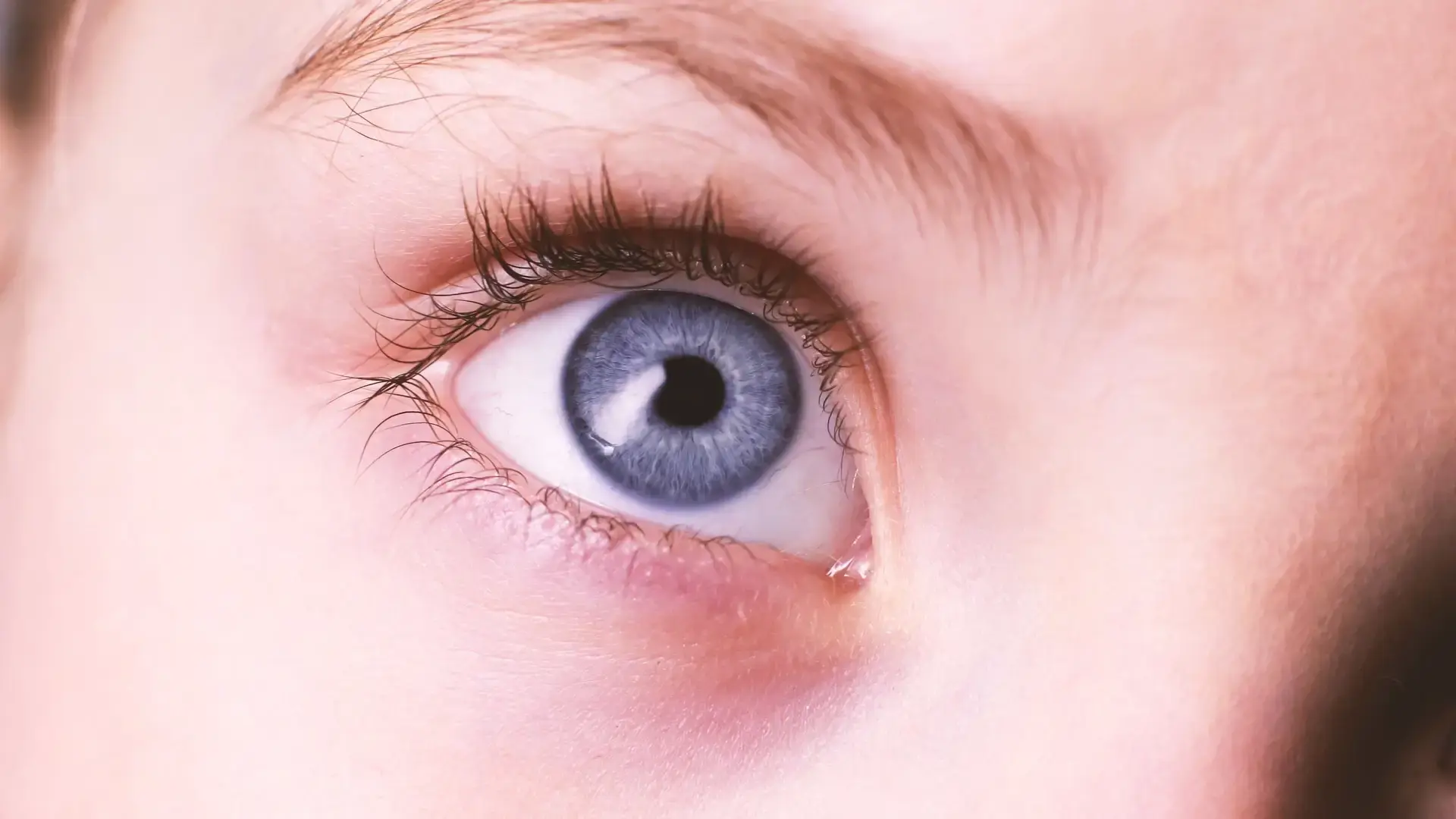If you’ve ever had itchy, watery eyes caused by allergies, you understand how burdensome it can be. This condition is known as eye allergies or allergic conjunctivitis - inflammation of the conjunctiva. This is the tissue that covers the white part of the eyeball and the insides of the eyelids. The conjunctiva helps keep the eye moist, but it can become inflamed when you have an allergic reaction.1
Here we’ll discuss the causes of eye allergies, symptoms to know, and how to treat them. Keep reading for some tips and tricks, along with recommended BENADRYL® products to soothe your itchy eyes.
Causes of Eye Allergies (Allergic Conjunctivitis)
Eye allergies can be caused by both indoor and outdoor allergens, as well as other irritating substances found in the air. When you’re exposed to an allergen, your body’s immune system releases histamine in response. This release causes the tiny blood vessels in your eyes to leak, leading to allergy symptoms like itchy, watery eyes. Since the eyes are sensitive and exposed directly to the air, they can be sensitive to allergens.2,3
Pollen from trees, grasses, and weeds can also be irritating to the eyes. During the spring and summer months when these plants are in bloom, they release dry grains of pollen into the air, which can irritate our eyes.4
Pet dander, saliva, and urine can also trigger eye allergies. Dander is made of dead skin flakes that cats and dogs shed, which can go into the air or onto surfaces in homes. They can be stirred up during cleaning and vacuuming, which can be irritating to the senses. If an animal licks your face or you touch your eyes, this can also set off an allergic reaction.5
Eye allergy symptoms can also be triggered by mold allergies. Mold can be found both outside and inside your home - especially in damp rooms like the bathroom, kitchen, basement, and laundry room. Molds release spores into the air, similar to pollen, which can trigger allergies in some people.
Along with allergens, certain substances like car exhaust, dust, smoke, and chlorine can also enter the air and be irritating to the eyes. They do not cause an actual allergic reaction, but they can feel similar to one.2
For tips and tricks on how to manage indoor allergies and outdoor allergies, check out our handy guides.
Eye Allergies (Allergic Conjunctivitis) Symptoms
Eye allergy symptoms are your body’s way of trying to clear out allergens and irritants. These can include:
Itchiness - Histamine can make the eyes itchy and irritated
Redness - Eyes may be bloodshot or red from leaky blood vessels
Feeling of grit or dirt in your eyes - May feel grainy from allergens making contact with your eyes, or from general irritation
Swollen eyelids - Eyelids may feel puffy and be difficult to close
Burning sensation - Eyes may be irritated and burn, especially if you rub them
Allergies typically affect the whole body, so you may also experience other symptoms like a runny or stuffy nose, an itchy throat, and sneezing.
Is Allergic Conjunctivitis Contagious?
You may be wondering, is allergic conjunctivitis contagious? Fortunately, it is not contagious, because it is caused by an allergic response from your immune system. It is not caused by a virus or bacteria, so it cannot spread from person to person.1
How Long Does Allergic Conjunctivitis Last?
The length of time allergic conjunctivitis lasts can vary depending on the allergens causing it and whether they are present seasonally or all year-round. In cases of seasonal allergies, allergic conjunctivitis symptoms can last for a few weeks, up to a few months. As long as the allergen is present, there’s a good chance you’ll have symptoms.1
On the other hand, year-round allergies can lead to a condition known as perennial allergic conjunctivitis. This condition occurs when you’re exposed to allergens throughout the year, which can cause symptoms. These tend to be indoor allergens like mold, dust, and pet dander. Perennial allergic conjunctivitis tends to be worse first in the morning after waking up but may get better as the day goes on.1
Pink Eye vs. Eye Allergies
Although similar in name, conjunctivitis — or pink eye — is much different from eye allergies. Pink eye is caused by an infection with a virus picked up from physical contact with others, touching your eyes with unwashed hands, or using contaminated cosmetic products. However, eye allergies are caused by your immune system’s reaction to an allergen, and not an infection.
Pink eye and eye allergies may be mistaken for each other because they share similar symptoms. However, they share some key differences. Eye allergies typically affect both eyes at the same time, while pink eye from a viral infection begins in one eye and then spreads to the other. If your eyes are intensely itchy, it is likely you have eye allergies, not pink eye.1
If you’re unsure about whether you’re experiencing eye allergies or have pink eye, pay a visit to your doctor. They will examine your eyes and, if necessary, prescribe you treatments to help.
How To Treat Allergic Conjunctivitis and Relieve Eye Allergies
The first step to treating allergies is to avoid allergens as much as possible. This helps limit your exposure so that your body can recover. For eye allergies, it’s best to:3
Avoid spending long periods of time outdoors during pollen season in your area
Avoid opening your windows, which can let pollen and dust inside
Regularly wipe down surfaces in your house and vacuum to limit dust, mold, and pet dander
Wash your hands and clothing after handling animals you’re allergic to
Take any necessary precautions when travelling with allergies
If your eyes do become irritated, try using allergy eye drops like tear substitutes or over-the-counter decongestant eye drops. These can help moisten the eyes and clean out any allergens or irritating substances.3
If you’re looking for a way to treat itchy, watery eyes from allergies along with other allergy symptoms, BENADRYL® has products to help. BENADRYL® Allergy ULTRATABS® and BENADRYL® Allergy Dye-Free LIQUI-GELS® fight histamine to offer eye allergy relief.
References
Johns Hopkins Medicine. Allergic Conjunctivitis. Accessed from: https://www.hopkinsmedicine.org/health/conditions-and-diseases/allergic-conjunctivitis
Asthma and Allergy Foundation of America. Eye Allergies (Allergic Conjunctivitis). October 2015. Accessed from: https://www.aafa.org/eye-allergy-conjunctivitis/
American College of Allergy, Asthma, & Immunology. Eye Allergy. Accessed from: https://acaai.org/allergies/allergic-conditions/eye-allergy/
Asthma and Allergy Foundation of America. Pollen Allergy. February 2022. Accessed from: https://www.aafa.org/pollen-allergy/
Pet Allergy: Are You Allergic to Dogs or Cats? October 2015. Accessed from: https://www.aafa.org/pet-dog-cat-allergies/
Johns Hopkins Medicine. Pink Eye. Accessed from: https://www.hopkinsmedicine.org/health/conditions-and-diseases/pink-eye



